Ravings at the Edge of Time
I. Where Rome Ended
They say Rome fell in Ravenna. Or Carthage. Or inside itself.
But there’s another version — Rome died on the banks of the Volga. Beneath a gray sky, where the steppe knows no boundaries and the wind speaks a language unfit for forums.
Rhapolis — a city that appears on no map. Only ripples in archives, stains in satellite images. Founded by command of the mortally wounded Emperor Trajan, it was to be Rome’s final northeastern outpost.
Ultima Rha. The Last Tower of the Empire.
II. Operation: Rha
In his final years, Trajan stretched Rome’s borders beyond logic.
He didn’t stop at the Euphrates. The Mesopotamian campaigns were a pretext. His true goal lay farther northeast — where maps blur and myths branch out.
The legion crossed the Caucasus, passed through Derbent, moved across Sarmatian lands. Through Caspian winds and the rusted cries of the steppe. Through cold, iron, and the echo of future wars.
Beyond the Volga, at the great river Ra, Trajan ordered a city built.
Rhapolis — the City of Rha. At the intersection of time and directions.
III. The Massacre at Hecate’s Temple
They came at night — the nomads.
Who exactly? Unclear. Possibly the Alans. Perhaps part of a forgotten coalition that Livy never mentioned, but the steppe whispers of.
They didn’t seek Rome — only blood and fire.
The Fifth Legion was shattered. The remnants retreated to an ancient temple — a pre-imperial structure with a colonnade devoted to Hecate, goddess of crossroads, shadows, and forgetting.
There, surrounded and doomed, the defenders sheltered their emperor.
Trajan, gravely wounded, lay atop a canvas among wagons of supplies: cheeses, bread, olives, boiled eggs, and roast fowl. His blood — dense, black, Roman — seeped into the food. His flesh — fused with the feast meant for triumph.
It became their final banquet. He was in it.
IV. The Salad as Tombstone
When the legion finally broke and fled, the supply carts were left behind.
The nomads feasted among the corpses, unaware. Bread. Meat. Cheese. The emperor’s blood. Eggs, greens, olive oil — all mingled together.
One of the chieftains muttered: “Cesar. The meat of the king.”
And so the Caesar salad was born — not in a hotel kitchen, but in the bloodied steppe.
Historians invented Caesar Cardini in the 20th century. Just a cover story.
The truth lies in the bones.
The emperor was later replaced by chicken, blood by dressing, pain by lemon juice.
But the taste remained.
We eat him. Almost every day.
V. The Mortuary: Gate of Shadows
The Temple of Hecate was never destroyed.
In the late Soviet period, a structure rose on its ruins — the Mortuary.
A rotunda in pseudo-Roman style. No inscriptions. No signs. No doors.
A building without beginning or end. No windows. No light.
Locals knew: the living don’t enter. Inside, no bodies were kept — only the residue of pain.
Its stone walls grew frost even in summer. Voices echoed at night.
Later, pagans and occultists began visiting.
Sometimes, they didn’t return.
VI. The City That Isn’t
Modern-day Volzhsky — a city that never should’ve existed.
But underground, beneath concrete, asphalt, and socialist realism — something seeps through.
Old maps show strange concentric rings. Archives contain scraps of Latin. In basements — stone slabs with half-erased symbols.
Some claim to have seen fragments of a forum buried deep.
Others say that near the old cemetery, they smell olive oil and iron.
VII. We Ate the Caesar
They say Trajan was taken to Gazipaşa (ancient Selinus).
There, a cenotaph was built. His body later returned to Rome.
That’s the official version.
The real burial happened in the grass, in the bread, in the olives, in the blood.
We consumed him — through food, myth, and carefully constructed lies.
The Caesar Salad is not cuisine. It’s a ritual of consuming empire.
A subconscious Eucharist of the late postmodern condition.
VIII. The Splinter Point
Maybe none of this happened.
Maybe it’s a dream. A metaphor for colonial flavor dissolved into globalized cuisine.
Or maybe — a truth displaced from the chronicles, but alive in language, in ritual, in a strange yearning for a power long gone.
Rhapolis has never been found. But it exists.
Each time you order a Caesar Salad, you touch a dead Roman god.
You chew the Empire. You take part in its final feast.
#VoiceOfRuins #RavingsAtTheEdgeOfTime #Rhapolis #EmperorTrajan #CaesarSalad #OccultRome #Mortuary #Nomads #Hecate #Volga #Volzhsky #WeAteTheEmpire










Our Telegram-channel: Voice Of Ruins https://t.me/Voice_Of_Ruins
Our Instagram: Voice Of Ruins https://www.instagram.com/voiceofruins/
Our group on Facebook: Voice Of Ruins https://www.facebook.com/share/g/16aitn9utM/
Our site: Voice Of Ruins https://www.voiceofruins.org

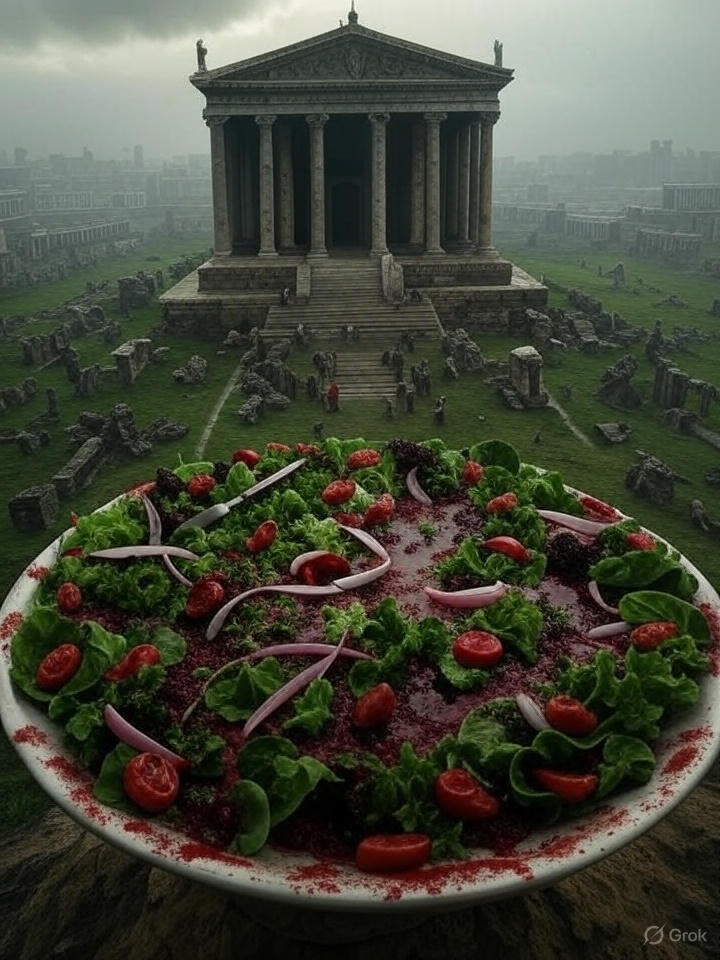
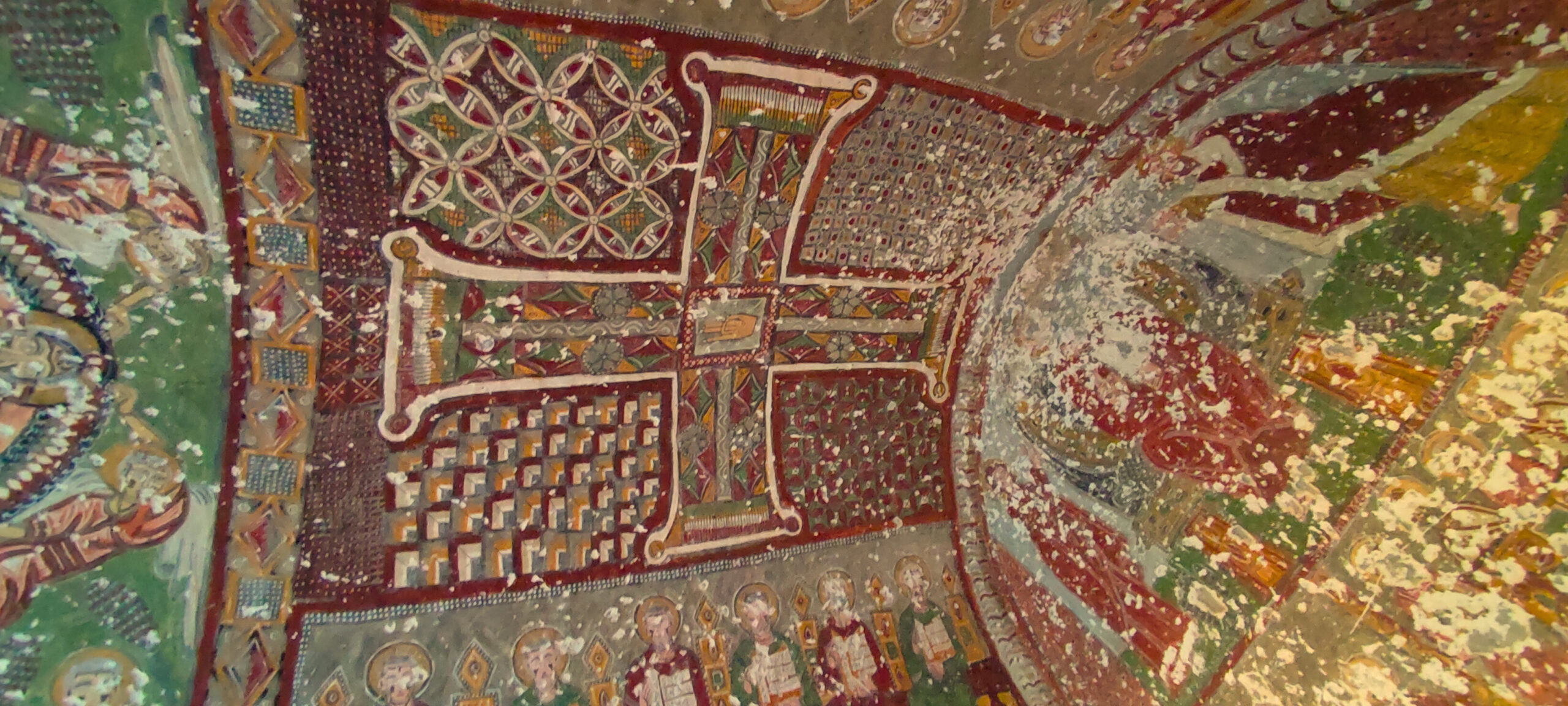
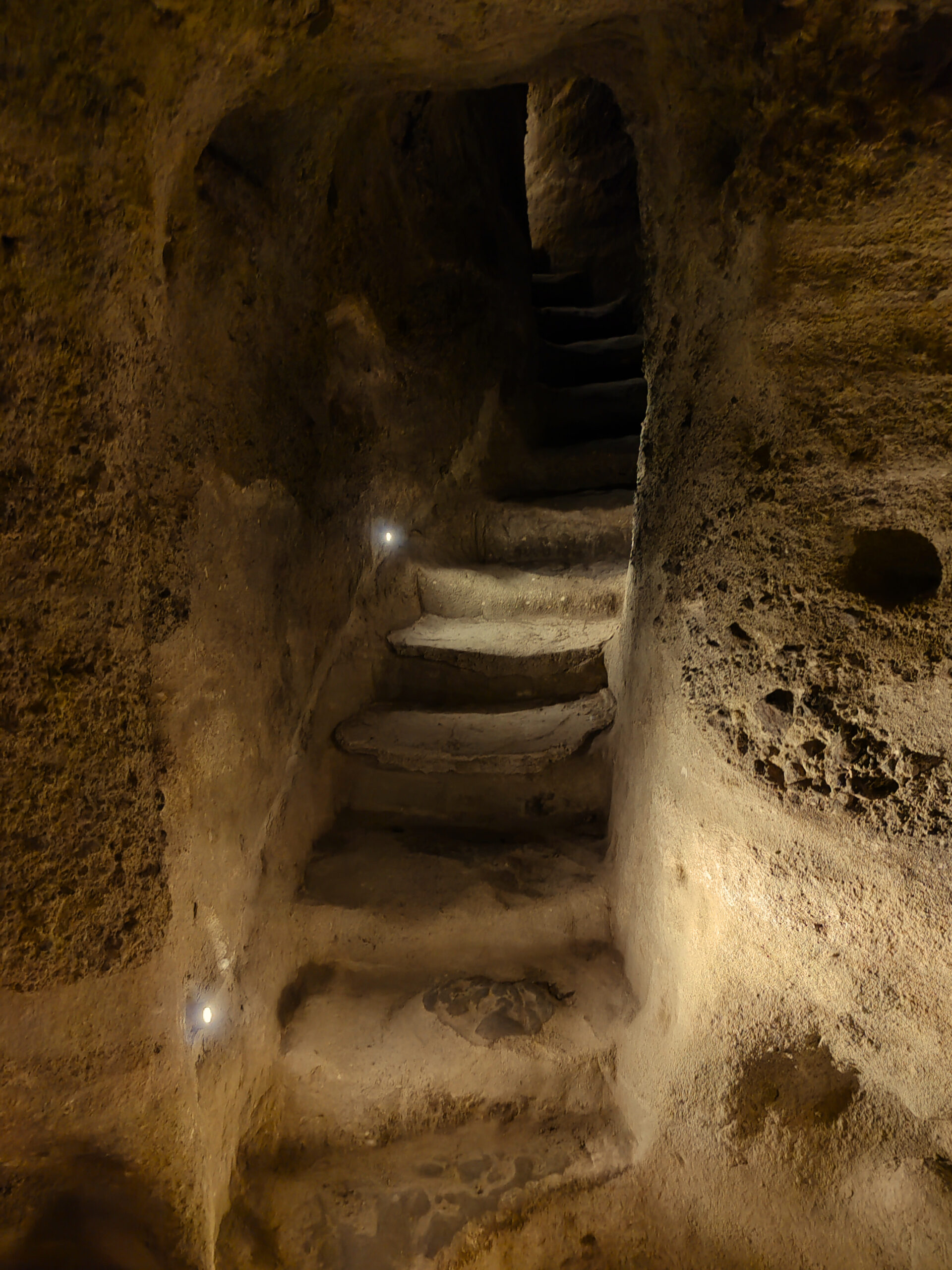
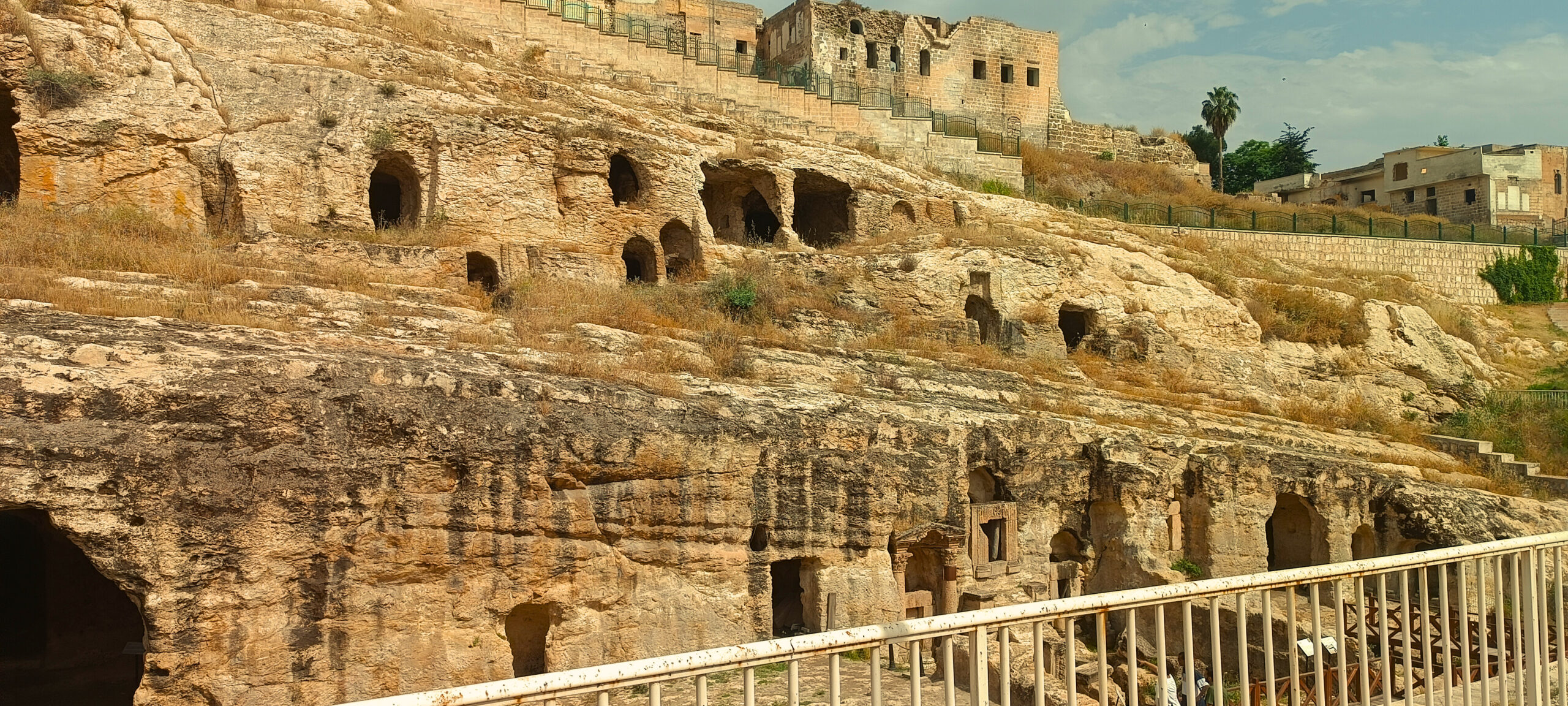
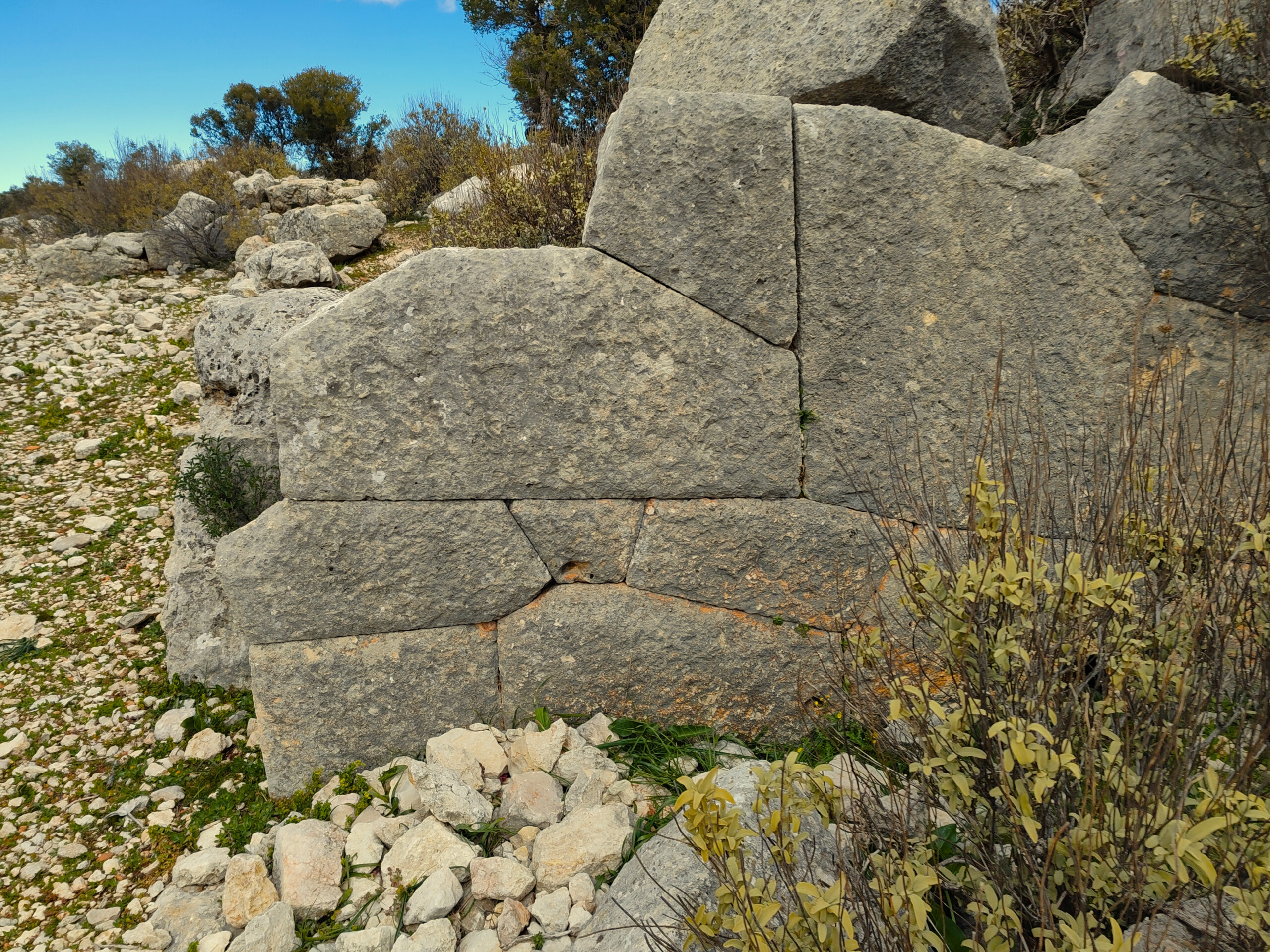
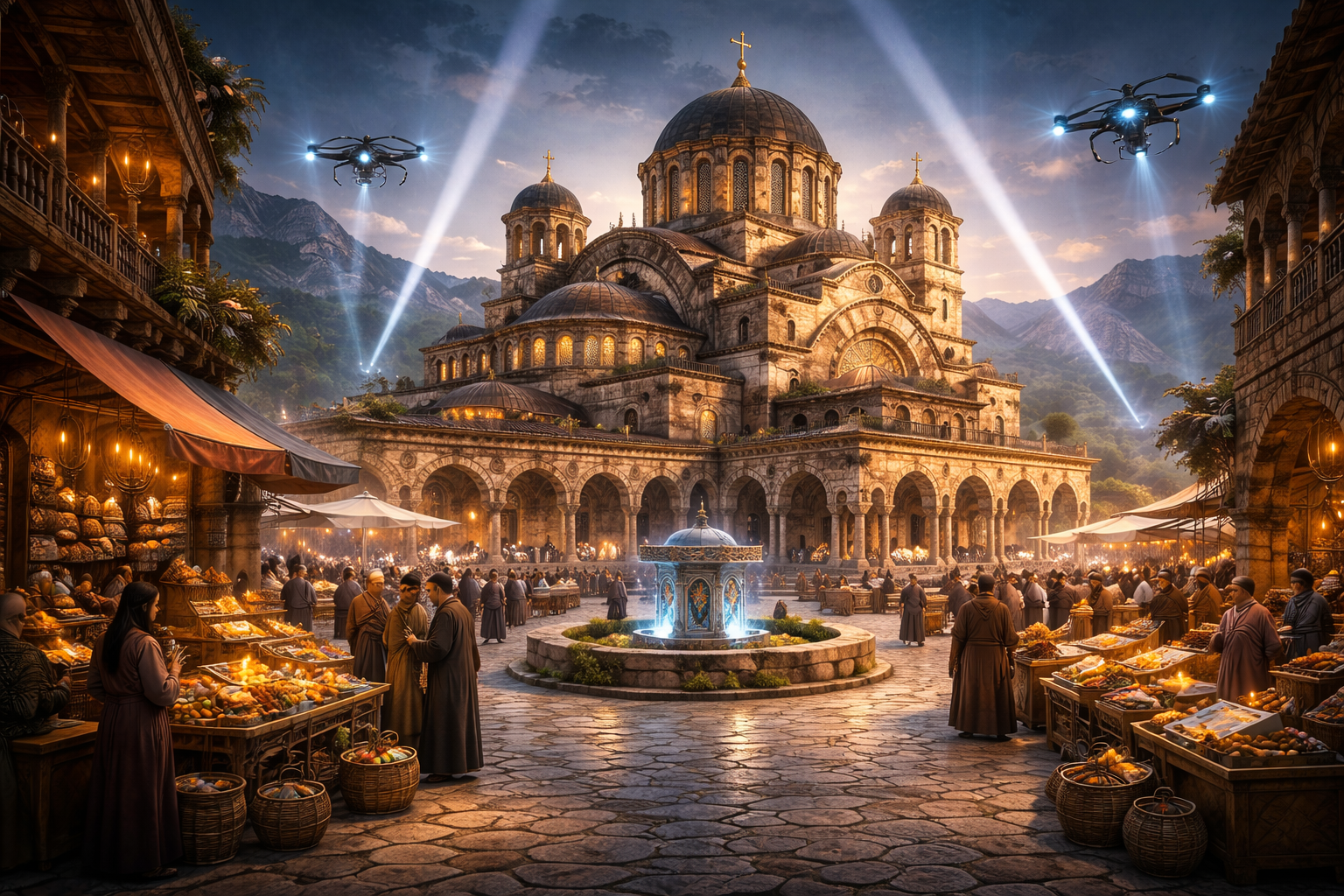


Leave a Reply